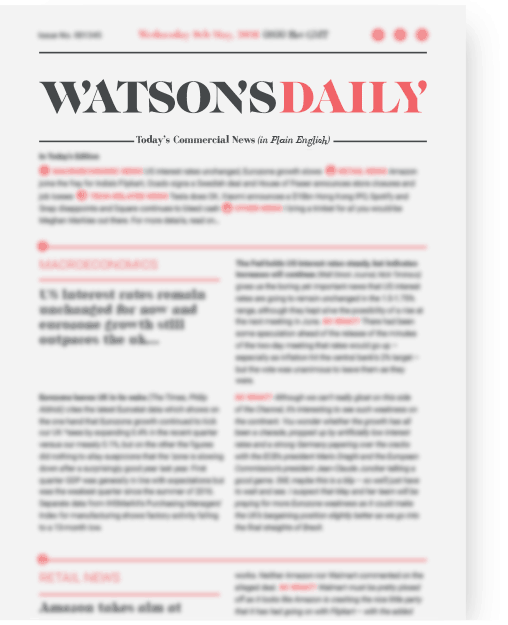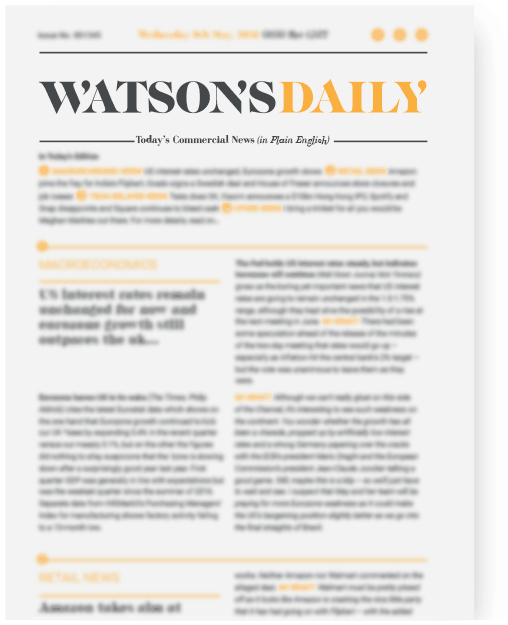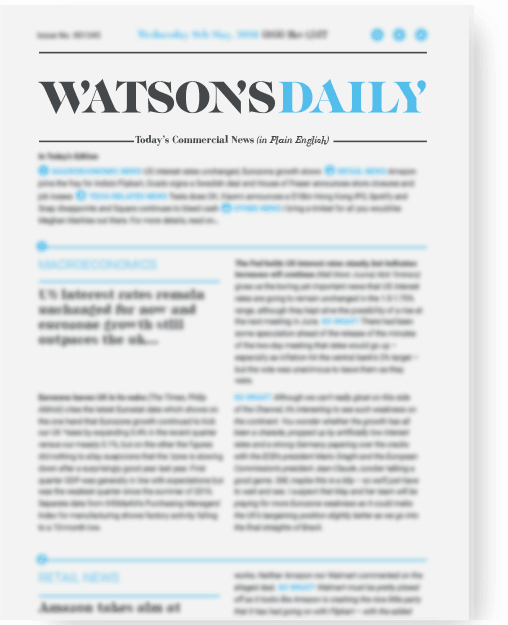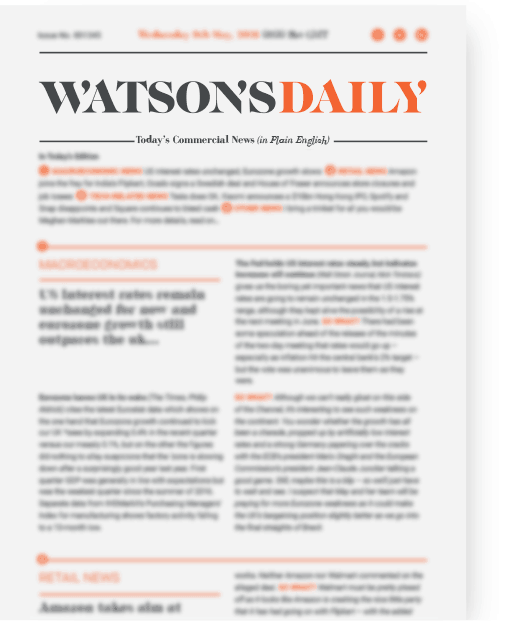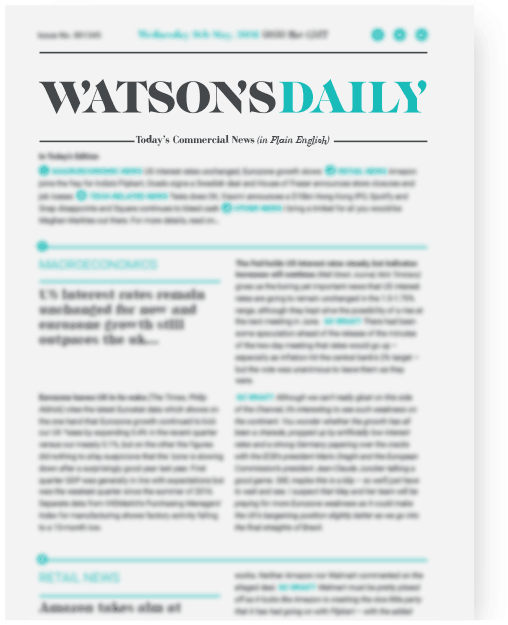- In MACRO & OIL NEWS, the US looks at trade agreements with neighbours and the Chinese, China’s inflation rises on pork prices and UK GDP flatlines while Saudi Aramco pumps up the valuation and Chevron cuts estimates
- In RETAIL NEWS, Ted Baker’s top management resigns and M&S makes a new clothing hire
- In INDIVIDUAL COMPANY NEWS, M&C Saatchi loses the M and property funds see MASSIVE outflows
- In OTHER NEWS, I bring you unusual Christmas traditions and Die Hard On Ice…
1
MACRO & OIL NEWS
So US trade agreements see developments, Chinese inflation rises partly because of pork, UK GDP slows, Saudi Aramco chases a $2tn valuation and Chevron has a reality check…
Revised trade pact set for likely approval by Congress in 2020 (Wall Street Journal, Natalie Andrews, William Mauldin and Anthony Harrup) shows that a new US trade deal with Mexico and Canada is getting closer. Trump campaigned in 2016 to remake or abandon the existing North American Free Trade Agreement (aka NAFTA). The new NAFTA replacement, the US-Mexico-Canada Agreeement (USMCA) was signed by all the top trading bods of the three countries and will replace NAFTA when ratified next year. The agreement covers changes in labour rules, the relaxation of restrictions related to generic drug production and the movement of data across borders, among other things. * SO WHAT? * OK, so the agreement has not yet been ratified, but it looks likely to get the go-ahead and will bring some certainty/clarity to all concerned.
Then in US and Chinese trade negotiators planning for delay of December tariffs (Wall Street Journal, Lingling Wei and Bob Davies) we see that a delay in the implementation of $165bn of new tariffs on Chinese goods on December 15th is looking increasingly likely. * SO WHAT? * Both sides are continuing their efforts to hammer out details for a phased trade agreement, so it really isn’t worth getting too excited about things at this stage. This is just the latest status!
In China pork price rise adds to inflation (Daily Telegraph, Russell Lynch) we see that higher pork prices, brought on by the massive cull of pigs following an African swine fever outbreak, have led to inflation reaching a seven-year high of 4.5%. Prices rose by 110% over the last year, but some are saying that this has now peaked out with prices up by only 3.8% in November versus a rise of 20% in October. * SO WHAT? * Pork is a major staple for the Chinese so rising prices will have an effect on household spending. Companies like Beyond Meat and Impossible Foods are among those trying to use the opportunity to make inroads in the China market for their pork alternatives – so the clock is ticking for them to make an impression before pork prices start to normalise. In the meantime, demand for other types of meat have risen and China has been importing more pork to make up for its sudden domestic shortfall, pushing up prices everywhere else.
Given the uncertain economic backdrop at the moment, UK economic growth slows to 2009 levels (Daily Telegraph, Russell Lynch) isn’t all that surprising as the latest figures from the Office for National Statistics (ONS) showed that
the economy flatlined in the three months leading into the October 31st Brexit deadline. Construction and manufacturing were particularly weak, but the overall performance was “saved” from contraction by a comparatively strong performance from the UK’s dominant services sector. * SO WHAT? * The services sector accounts for about 80% of the UK’s GDP, so ONS warnings that it is currently losing momentum will spark some concern as manufacturing is not going to take up any slack. What happens next will hinge on the outcome of tomorrow’s general election.
In the world of oil, Saudi Arabia renews push for $2tn Aramco valuation (Financial Times, Simeon Kerr, Anjli Raval and Arash Massoudi) shows that the push to get institutions and rich families to buy into the Saudi Aramco IPO continued in the run-up to its float today with a focus on getting a $2tn valuation by hyping up the aftermarket (in other words, although the indicative price of the flotation suggests a company valuation of $1.7tn, those in the deal are trying to talk up the prospects of the company so investors will try to buy more after it floats on the market, which will send the price up, which will then get the company closer to the $2tn valuation that Crown Prince Mohammed bin Salman so craves). * SO WHAT? * In short, I think that hyping the shares up for the aftermarket is eminently possible for a company that is only floating 1.5% of its shares. If you assume that a third of that 1.5% is going to be locked up with retail investors via incentives that they will get more shares if they don’t sell for 180 days and that institutional investors will have been strongly encouraged not to sell either, there’s only a miniscule free float left over that people can actually trade. This still doesn’t disguise the fact that many do not believe it is worth anywhere near the $2bn mark apart from the Crown Prince, but HE will say that the float is a success because it priced at the top of the range and the aftermarket price will be squeezed upwards (at least for the near term) due to shortage of shares being traded. It just goes to show what you can achieve if you have tons of money and can threaten people effectively into doing what you want 😬
Then in Chevron, facing fossil fuels glut, takes $10billion charge (Wall Street Journal, Christopher M. Matthews and Rebecca Elliott) we see that America’s #2 oil company is making its largest asset write-down in years due to an abundance of oil and gas. The company also said that it would restructure to focus on fewer prospects as natural gas prices stay stubbornly low and lowered its commodity price forecasts. * SO WHAT? * Given Chevron’s size, it is likely that other oil companies will be prompted to look at their own portfolios with a view to trimming here and there. Shale gas producers will be particularly adversely affected as oversupply has led to consistently low prices. This writedown follows other recent writedowns from the UK’s BP in October and Spain’s Repsol last month as the economics of many projects have become less compelling. OPEC’s decision to make production cuts last week would seem to confirm the overall sentiment.
2
RETAIL NEWS
Ted Baker bosses resign and M&S gets a new supply chain chief…
Ted Baker bosses quit as it warns of profits plunge (The Guardian, Sarah Butler and Julia Kollewe) highlights more bad news from the fashion retailer as it announced its fourth profits warning in a year along with the departure of its chief exec and chairman. The news prompted a share price drop of 35% initially, but ended the day down by 13%. The share price has fallen by 90% in less than two years. * SO WHAT? * Given that founder Ray Kelvin still has a 35% slice of the company he resigned from, due to allegations of inappropriate workplace conduct, you can see why there is increasing speculation that he will buy the company and take it private to sort out its problems away from investor gaze. It’s not clear whether he can do this alone (even taking into account the current weak share price), but the price just seems to keep getting cheaper by the day. If you want to catch up on the story so far, How fashion brand lost its way after the ‘hugs’ furore (The Times, Ashley
Armstrong) does a good job but, in a nutshell, eccentric founder Ray Kelvin resigned amid allegations of inappropriate conduct with his staff and since then the company has collapsed. His longtime lieutenants failed to arrest the slide which came to a head last week when the company’s new CFO, Rachel Osborne, discovered a £25m hole in the accounts that is now being investigated by third parties – and the CEO and chairman have now been made to pay with their jobs. The drama continues, but without a leader to steer the company through choppy waters…
Marks seeks new spark to light up clothing arm (The Times, Ashley Armstrong) heralds a new hire from Adidas, Paul Babbs, to head up its supply chain as part of efforts by M&S to sort out its clothing division. This comes three months after it sacked its previous supply chain chief, Gordon Mowat, and chief exec of clothing, Jill McDonald for a massive error that resulted in embarrassing shortages of a key jeans line that was popularised by a Holly Willoughby ad campaign. Hopes are high, given Babbs’ reputation at Adidas, but there is still work to be done here. At least it seems to be a step in the right direction.
3
INDIVIDUAL COMPANY NEWS
M&C Saatchi loses Maurice and property funds see huge outflows following the M&G debacle…
Maurice Saatchi quits M&C as accounts scandal takes fresh twist (Financial Times, Alex Barker) heralds more bad news for the ad agency following the recent accounting scandal at M&C Saatchi as Maurice, the M of M&C, and three independent directors resigned over disagreements over how to reform governance at the company. The drama continues…
Investors pull £138m out of property after M&G block (Daily Telegraph, Michael O’Dwyer) highlights the knee-jerk reaction to M&G’s recent decision to suspend trading on its property funds. Apparently, investors pulled a whopping £140m out of property funds in the three days following the news as M&G’s move highlighted increasing concerns over anything related to retail property. Since last week’s announcement, sell orders have made up 80% of trading in property funds 😱
4
OTHER NEWS
And finally, in other news…
Given that we are now firmly in the approach to Christmas, I thought that you’d find 11 Unusual Christmas Traditions Around the World (Mental_Floss, Erika Wolf https://tinyurl.com/rdy3wgq) quite interesting and when I saw Die Hard On Ice parody video released and it’s nothing if not Christmassy (Metro, Jamie Tabberer https://tinyurl.com/sjep2zc) I thought I just had to include it! If only it were true…
Some of today’s market, commodity & currency moves (as at 0859hrs green is up, red is down). THIS IS INTENDED AS A ROUGH GUIDE ONLY!
| FTSE 100 * | Dow Jones * | S&P 500 * | Nasdaq** | DAX * | CAC-40 * | Nikkei ** | Shanghai ** |
| 7,218 (-0.15%) | 27,880 (-0.13%) | 3,131 (-0.21%) | 8,616 | 13,069 (-0.24%) | 5,845 (+0.13%) | 23,392 (-0.08%) | 2,924 (+0,24%) |
| Oil (WTI) p/b | Oil (Brent) p/b | Gold Per t/oz | £/$ | €/$ | $/¥ | £/€ | $/₿ |
| $58.7925 | $63.8404 | $1,464.21 | 1.31396 | 1.10843 | 108.71 | 1.18544 | 7,216.49 |
(markets with an * are at yesterday’s close, ** are at today’s close)





